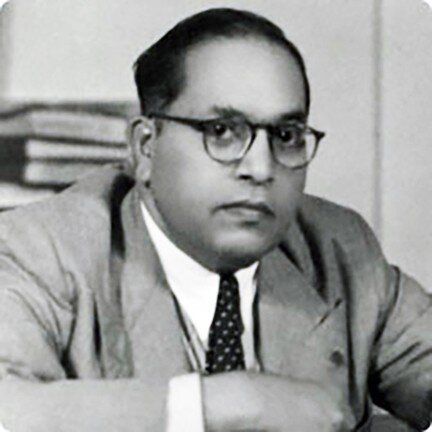64th Mahaparinirvan Diwas
Why in News
Mahaparinirvan Diwas is observed every year on 6th December to commemorate the death anniversary of Dr. B R Ambedkar.
- Parinirvana, regarded as one of the major principles as well as goals of Buddhism, is a Sanskrit term which means release or freedom after death. As per the Buddhist text Mahaparinibbana Sutta, the death of Lord Buddha at the age of 80 is considered as the original Mahaparinirvana.
- Owing to Ambedkar’s status as a Buddhist leader, his death anniversary is referred to as Mahaparinirvana Diwas.
Key Points
- Birth: 14th April 1891 in Mhow, Central Province (now Madhya Pradesh).
- Brief Profile:

- Dr. Ambedkar was a social reformer, jurist, economist, author, polyglot orator and a scholar of comparative religions.
- In 1916, he received a doctorate degree from Columbia University, becoming the first Indian to do so.
- He is known as the Father of the Indian Constitution and was an independent India’s first law minister.
- Dr. Ambedkar was a social reformer, jurist, economist, author, polyglot orator and a scholar of comparative religions.
- Related Information:
- He established a fortnightly newspaper “Mooknayak” in 1920 which laid the foundations of an assertive and organised Dalit politics.
- He founded Bahishkrit Hitkarini Sabha (1923), devoted to spreading education and culture amongst the downtrodden.
- He was appointed by the Bombay Presidency Committee to work in the Simon Commission in 1925.
- He led the Mahad Satyagraha in March 1927 to challenge the regressive customs of the Hindus.
- The Kalaram Temple Movement of 1930 formed a pivotal role in the Dalit movement in India in which Ambedkar led a protest outside the Kalaram temple which did not allow Dalits to enter the temple premises.
- He participated in all three round-table conferences.
- In 1932, he signed the Poona pact with Mahatma Gandhi, which abandoned the idea of separate electorates for the depressed classes (Communal Award).
- However, the seats reserved for the depressed classes were increased from 71 to 147 in provincial legislatures and to 18% of the total in the Central Legislature.
- In 1936, he was elected to the Bombay Legislative Assembly as a legislator (MLA).
- On 29th August, 1947, he was appointed Chairman of the Drafting Committee for the new Constitution.
- He accepted Prime Minister Nehru's invitation to become Minister of Law in the first Cabinet of independent India.
- He resigned from the Cabinet in 1951, over differences on the Hindu Code Bill (aimed at reforming Hindu society).
- In 1956, he converted to Buddhism.
- He passed away on 6th December 1956.
- He was conferred Bharat Ratna in 1990.
- Chaitya Bhoomi is a memorial to B.R. Ambedkar which is located in Dadar, Mumbai.
- Important Works: Newspaper Mooknayak (1920); The Annihilation of Caste (1936); The Untouchables (1948); Buddha Or Karl Marx (1956), The Buddha and His Dhamma (1956), etc.
- Quotes:
- ‘Democracy is not merely a form of government. It is primarily a mode of associated living, of conjoint communicated experience. It is essentially an attitude of respect and reverence towards fellow men’.
- “I measure the progress of a community by the degree of progress which women have achieved”.
- ‘Humans are mortal. So are ideas. An idea needs propagation as much as a plant needs watering. Otherwise, both will wither and die’.